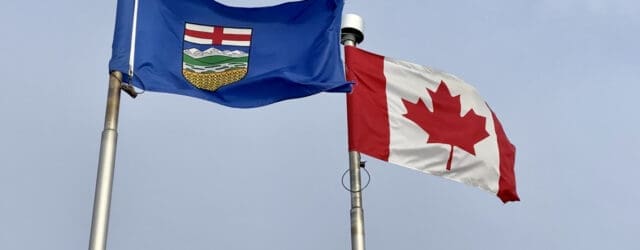ENVIRONMENTAL OBLIGATIONS PRIORITISED IN INSOLVENCY PROCEEDINGS: APPEALS UPDATE
December 2023Following our previous article on the Canadian case of Qualex-Landmark Towers Inc v 12-10 Capital Corp, there has been an application to appeal to Alberta’s highest court with several intervener applications. Beale & Co provides an update and further commentary on the next chapter of this environmental case.
This update follows on from Beale Law’s previous article on Qualex-Landmark Towers Inc v 12-10 Capital Corp 2023 ABKB 109 (“QL Towers”). Capital Corp have appealed the King’s Bench decision, and recent developments have seen a number of intervener applications, the most significant being the Canadian Bankers Association (CBA) and the Attorney General of Alberta. You will remember that QL Towers widened the protection available for enforcers of environmental reclamation obligations, expanding protection to include private individuals. The decision demonstrated that Canadian Courts have a strong interest in environmental policy and in cementing the status of environmental law. At the same time, the decision threw into doubt the long-established legal status of secured lenders, as by creating a super-priority security interest, the Court’s ruling has the potential to significantly impact the lending sector. This is particularly significant as the Canadian banking system has been one of the most successful Western banking systems post the 2008 crisis and thus, uncertainty in the system will create warning signs for the global banking sector.
The CBA has successfully sought permission to intervene in Capital Corp’s appeal on the basis that the decision creates uncertainty for secured lenders. Alongside other interveners, the CBA is looking to the High Court to dismiss the King’s Bench decision and to re-establish the priority of secured lenders in instances of insolvency. If held, the decision will create a super-priority security interest for private parties over registered mortgages, even in the absence of insolvency proceedings or an environmental order, and could limit how secured lenders and borrowers are able to deal with mortgaged property. In extending the super-priority charges beyond formal insolvency proceedings, the judgment has issued a potentially significant blow to the Canadian lending market.
The Attorney General (AG) of Alberta has brought an intervention on behalf of the Minister of Environmental and Protected Areas (AEPA). According to the AEPA, the original decision ignored the regulatory scheme and undermined the role of the regulator by proposing that an entity need not be a regulator to enforce the environmental remediation obligations under the Environmental Protection and Enhancement Act (EPEA). By allowing for a non-regulator entity (Qualex) to enforce environmental remediation obligations under the EPEA, the King’s Bench decision circumvented the mechanics of enforcement set out in the Act. This creates uncertainty and undermines the statutory position, in turn creating a potentially dangerous precedent. A regulator seeking to enforce a public duty is not seeking to enforce a debt – they are not the sole beneficiary, and the duty is upheld for the benefit of all. Conversely, Qualex was acting for their personal benefit, rather than the public at large. By allowing Qualex to circumvent the regulatory process, the object and purpose of the EPEA is at risk. The AEPA has requested that the decision is reconsidered in order to reinforce the clear distinctions drawn in the EPEA, and to provide clarity as to the role of the regulator.
In making its decision, the Court ruled that environmental remediation obligations were an intrinsic part of a polluter or responsible party. Therefore, these obligations form part of the asset valuation, and as such are a liability that ought to be accounted for. The original King’s Bench decision prioritised environmental claims by private individuals over the established position of secured lenders in insolvency scenarios. In an attempt to strengthen the position of environmental law, the court has undermined the established position of secured lenders. More interveners will further muddy the waters in a case that already has potential widespread impact, and as more parties seek to have their say, global scrutiny of the case will grow.
If the appeal is dismissed, then the Canadian courts will have upended the priority rights of lenders. The CBA and fellow interveners will seek to bring the Court of Appeal’s attention to the negative implications the decision will have on the banking sector. As a result of the King’s Bench decision, lenders are likely to be increasingly cautious in the face of potential disputes. As environmental issues will no doubt remain difficult to identify (even following a due diligence process), lenders are likely to act with greater caution in the face of uncertain risks. Due to the increased global attention given to environmental remediation, this decision has the potential to form a global precedent. Whatever the court’s decision, it is likely that this case will see a further appeal to the Supreme Court.
Download PDF








